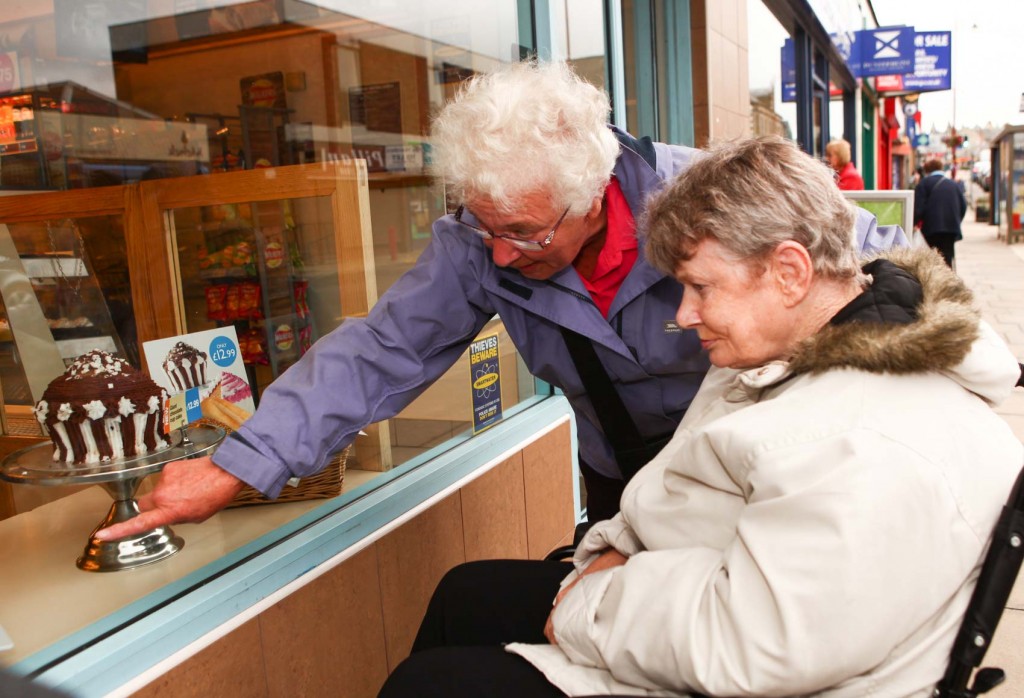In the early 1990’s a small group of local citizens got together to look at how to support people with learning disabilities in the local long-stay hospital. On the 28th of August 1992 the group chose its name as Dunfermline Advocacy Initiative. In June 1993 the group was awarded charitable status, and the rest as they say is history!
Our mission:
“Through Citizen Advocacy vulnerable people’s voices are heard, protecting and safeguarding their rights while building sustainable friendships, networks, and links in the communities of West Fife.”
Dunfermline Advocacy provides support for Citizen Advocacy partnerships across West Fife. Citizen Advocacy matches local volunteers with vulnerable adults in the community to provide invaluable support and friendship, giving each individual a chance to have their voice heard, to know their rights, and to be empowered to make informed choices about their lives.
Building Relationships
Citizen Advocates aim to build lasting meaningful connections and mutually beneficial relationships with our advocacy partners. For many people their Citizen Advocate is the only person not paid to be in their life and here the impact of having a friend cannot be overstated.
Providing Support
Citizen Advocates provide essential support for local people at key times of vulnerability and need. A key part of many partnerships is the support Advocates provide, whether by ensuring their partner has the information they need to make choices, by sharing activities to widen opportunities and by ensuring their partner understands the legal processes they are part of.
Giving People a Voice
Citizen Advocates speak up for those who may not otherwise have their needs represented and promoted. Supporting someone to have their say, or speaking up on their behalf can happen in many ways, from support to ask for small things at home to speaking up in formal meetings which could include statutory proceedings like a mental health tribunal.
Who are the Advocates?
Citizen Advocates are volunteers from all walks of life who want to help others in their community. They are a friend, an ally, and a spokesperson, taking time out of their busy lives to support people who may not otherwise be able to put their own interests forward. Advocates may help their Partner with practical support and advice, or simply be someone to turn to for moral support.
Who are the Advocacy Partners?
Advocacy Partners are vulnerable adults looking for support and someone to speak up for them. Partners are generally people with learning disabilities or other issues that risk isolation, social exclusion, or unfair treatment. They may also have a mental health need, physical disability, or long-term health condition that puts them at risk of being unable to safeguard their rights. Partners may be living independently, in long-term care, or in supported housing.
What is an Advocacy Relationship?
An Advocacy Relationship is a mutual partnership in which the Advocate’s sole loyalty is to their Partner. It is not a service provided to the person with a disability, but a relationship of friendship and support between two individuals.
Types of Citizen Advocacy
Long-Term Citizen Advocacy – Friendships Changing Lives
Long-term Citizen Advocacy is focused on building strong, lasting friendships where both individuals can flourish and learn from each other. For Advocacy Partners, this often means:
- Having a consistent friend to share life with and reduce isolation.
- Someone who will stand by them through changes, challenges, and opportunities.
- Ongoing support to make choices about their own lives with confidence.
- Help to access new opportunities in the community
- A trusted person to encourage them and to speak up with or for them if needed.
Short-Term Advocacy
Short-term Citizen Advocacy is focused on addressing an immediate need or concern a vulnerable individual may have, such as worries about housing, health, or finances. In these partnerships, an Advocate might:
- Help them prepare for and attend important meetings.
- Make sure their rights and wishes are understood in health or social care settings.
- Assist with paperwork, applications, or other practical tasks during a stressful period.
- Provide reassurance and encouragement until the situation is resolved.
If you or someone you know might benefit from having an Advocate, please contact us to make a referral.

